September 2017 Sustainable Development
Read the articles selected in September 2017
The state of food security and nutrition in the world
Source: http://www.fao.org
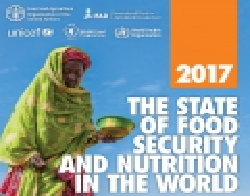
The recent increase in hunger in the world is cause for great international concern, in sight of the 2030 Agenda’s SDG 2. Various forms of malnutrition are linked with food insecurity, that affects countries experiencing conflicts and climate shocks, and is a factor for geopolitical instability.
Discorso sullo stato dell’Unione 2016: verso un’Europa migliore
Source: http://www.asvis.it/
The Europe we belong to doesn’t mean just market protection, privacy and consumers’ defense, fight against terrorism, but it does have an existential dimension. Our values, the safeguard of fundamental rights, the peace are not separable from the way of life we fight for, and in this way we are European.
Limiting global warming to 1.5°C may still be possible
by Jeff Tollefson
Source: Nature, 18 September
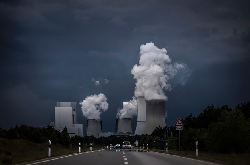
A study published in Nature Geoscience shows a slight discrepancy between the warming documented by climate models used in 2013 and the actual observations, that suggest a more optimistic scenario about the efforts needed to meet the not impossible Paris goal of 1.5°C.
Read more:
http://www.nature.com/news/limiting-global-warming-to-1-5-c-may-still-be-possible-1.22627
Do you really need more warnings about climate change?
by Bill Mckibben
Source: The Guardian, 11 September

Although not technologically impossible, the fight against global warming, that is against fossil fuels’ consumption, has a time limit. The third hottest year ever reported is a red line warning that we are going towards a world about 3.5 °C warmer.
What we know about the climate change –hurricane connection
by M. Mann, Th. C. Peterson, S.J. Hassol
Source: Scientific American, 8 September
About the disputed relation between human-made climate change and extreme events, today’s science can demonstrate certain general linkages such as the proportionality of the speed of storms to the level of warming, and if not, it can explain individual events in a more probabilistic sense.
Education at a Glance 2017
Source: http://www.oecd.org/, 12 September

Education is central to the fight against poverty and inequalities and to the achievement of every other SDG. In the OECD and partner countries, the population average has become more highly educated, with returns in terms of employment and pay. Despite the general progress, significant challenges remain.
Read more:
http://www.oecd.org/education/education-at-a-glance-19991487.htm
Una campagna internazionale sui social media per il 2° anniversario degli SDGs
by Ottavia Ortolani
Source: http://www.asvis.it, 8 September

On the 2030 Agenda’s 2nd anniversary, from 8th to 25th September SDG Watch Europe is organizing a social media campaign dedicated every day to one of the SDGs, to raise the awareness about the Agenda’s consistency and the role of Europe in its realization.
Read more:
La planète subit de plein fouet les dérèglements climatiques
by Stéphane Foucart
Source: Le Monde, 9 September
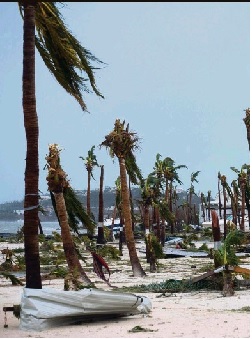
The pains brought by the natural disasters, due to the global warming and lashing every part of the Earth with unprecedented frequency and gravity, should be put before all ideological debate on the consumption of fossil fuels. At the end of the Holocene, what we have is a different Planet.
Migration sea route to Italy is world’s most letal
by Seed Kamali Dehghan
Source: The Guardian, 11 September
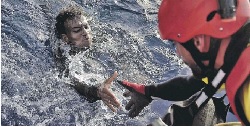
Despite a drop in the overall number of arrivals, migrants crossing the Mediterranean continue to die, and more than before. Forced to choose the central, the most dangerous route, from Libya bound for Sicily, they are exposed to a risk of violence and exploiting, relying on unscrupulous smugglers.
How to provide a protein-rich diet to a growing population
Source: http://www.asvis.it, 11 September
Planet’s population and its demand for animals’ proteins are expected to rise by a third in the next decades. The question is about the sustainability of food. The answer is not only in a shift to a more differentiated human diet but also in a vegetarian feeding of livestock and in a more rational use of crops.
Cracking the code: girl’s and women’s education in science, technology, engineering and mathematics (STEM)
Source: http://unesdoc.unesco.org/
Advances in STEM are crucial to achieving SDGs such as ending hunger and tackling climate change. Ensuring equal access of girls and women to STEM at all levels of education and career means to draw on the widest pool of talent to promote excellence.
International Literacy Day 8 September
Source: http://www.un.org/

The world literacy is a crucial issue of the 2030 Agenda. This year’s Day concerns the literacy in the digital world and intends to raise the attention on the importance of acquiring the skills needed in the societies digitally mediated.
Read more:
http://www.un.org/en/events/literacyday/index.shtml
Les migrants, cibles du trafic d’organes
Source: Le Monde, 6 September
In the Near East, migrants and displaced people are victims of organ traffickers. The sale of organs represents for many of them the only way to survive or continue their journey. The illegal market covers a 10% of the transplants executed in the world and hinders the development of a virtuous health system.
Forward-looking policy-making at the European Parliament through scientific foresight
Source: http://www.asvis.it
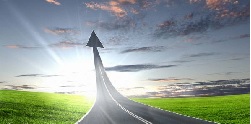
The European Parliament’s Science and Technology Options Assessment Panel, which analyzes the future scenarios sketched out by the scientific and technological development, supports the European institutions with a scientific foresight approach, in defining political priorities and strategies.
Paris climate pact “will cost $1.5 tn in global profits”
by Richard Partington
Source: The Guardian, 4 September
After an analysis by Schroders, to meet the Paris climate agreement the price of fossil fuels should rise to $100 a tonne, which would cost 1.5 tn in global profits. But also climate change is an example of market failure.
Info
- Pubblicato il : 19/12/2017 Modificato il : 04/04/2019
Allegati
- Cracking the code pdf
- Do you really need more warnings pdf
- Limiting global warming pdf
- Verso un'Europa migliore pdf
- The state of food security and nutrition in the world pdf
- A protein rich diet for a frowing population pdf
- The world s most letal migration sea route pdf
- La planète en dérèglement climatique pdf
- Paris climate pact s costs pdf
- European Parliament note pdf
- Les migrants cibles du trafic d'organes pdf
- Hurricane connections pdf

